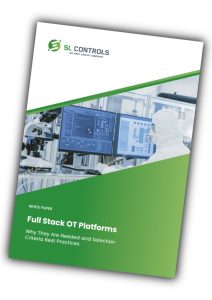In regulated industries, CAPA (Corrective and Preventative Action) is a core component of your Quality Management System (QMS). Your CAPA quality process is essential for regulatory compliance reasons, but CAPA is also about improving product safety, operational safety in your plant, productivity, OEE, cost-base, and more – the list goes on.
CAPA aims to identify and stop problems and non-conformities from reoccurring (or occurring in the first place) to ensure continuous quality improvement.
While CAPA is important, the reality in many regulated manufacturing organizations is that it is also time-consuming, inefficient, and unnecessarily costly. Results from CAPA quality processes are often sub-optimal, and even with the best efforts and intentions, your organization can remain exposed to compliance, commercial, and reputational risks.
Furthermore, most of the time and resources expended on CAPA are focused on the “C” element – corrective actions. This can be because of resource availability as well as a lack of complete or accurate data to work through the preventative component.
In the real world, CAPA is more like EBCAAOPAWDIAAWHETTCAPA – “event-based corrective actions and occasionally preventative actions when data is available and we have enough time to conduct a proper analysis”.
That’s a bit of a mouthful so we’ll stick to CAPA but in doing so, we’ll answer two fundamental questions:
- Why are CAPA quality processes inefficient?
- How can CAPA quality processes be improved?
Why Are CAPA Quality Processes Inefficient?
All manufacturing facilities are unique, with different challenges, processes, and systems. As a result, there is no single answer to the question of CAPA quality process inefficiency. That said, one of the major contributory factors is paper-based processes.
Paper-based processes are in themselves inefficient, and they are prone to human error. Paper-based processes also make it more difficult to quickly identify the problems and non-conformities that CAPA quality processes aim to correct. Predicting potential problems and non-conformities before they occur so preventative actions can be taken is even more difficult.
Even when problems or non-conformities are identified, paper-based processes make the next crucial stage of CAPA costly and time-consuming – investigating the non-conformity to understand the impact, level of risk, and root cause. Accurate and complete paper records may not exist and even when they do, it is often challenging to efficiently locate and analyze them.
So, paper-based systems in regulated manufacturing facilities are a major cause of inefficiency in CAPA quality processes.
How Can CAPA Quality Processes Be Improved?
Digital transformation is the solution, where paper-based systems and processes are digitalized. That doesn’t just mean digitizing the storing of records, but digitalising complete processes so the collection, communication, and analysis of records are all automated and digitalized.
Digitalizing CAPA quality processes is part of this solution, but the bigger and more impactful element is to progress digital transformation initiatives in your facility. An example is to implement a modern MES/SCADA solution that could digitalize at least 50 percent of current paper-based processes within six months and deliver rapid returns on investment.
Read our whitepaper on how modern solutions make it possible to implement a single system combining both MES and SCADA functionality, reducing costs, installation complexity, and ongoing usability.
By implementing a paper-to-glass solution, problems and non-conformities can be identified and investigated quicker, leading to the faster implementation of corrective actions.
You can also then move more into prediction-based CAPA, where potential problems are identified and corrected before they occur.
Digital Transformation Beyond Quality Control
Of course, the benefits of modern MES-SCADA solutions and digital transformation initiatives go beyond making CAPA quality processes more efficient. Given the crucial role that CAPA has in terms of your QMS and overall operational performance, the impact of digital transformation on quality control and continuous improvement should not be underestimated. In many situations, it justifies the investment even before you consider increased automation, greater availability of real-time data, and improved productivity.
So, the summary is digital transformation will drive significant efficiency savings in your CAPA quality processes.
Download the Whitepaper
Full Stack OT Platforms

Why platforms like Ignition MES and Ignition SCADA are needed and selection best practices

